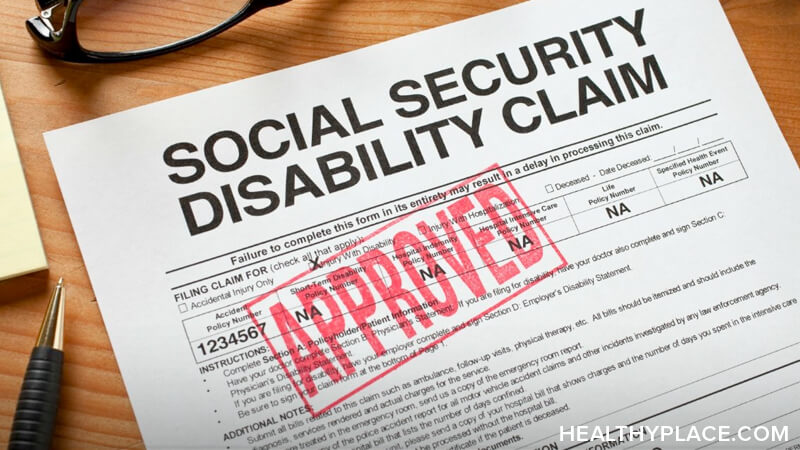Mental Health Disability Definition: Are You Eligible?

Mental health disability refers to programs offered by the United States government to its citizens who live with mental health disorders severe enough to render them unable to complete the required tasks of daily living. (Countries other than the U.S. offer similar programs.) When mental health struggles interfere with someone's ability to provide and care for themselves, he or she may be eligible for mental health disability benefits.
Mental Health Disability Programs
Federal and state governments have established a variety of formal social programs that assist people living with life-limiting physical and mental health disorders. Supplementary Security Income (SSI or social security) and Social Security Disability Insurance (SSDI) are the two primary mental health disability programs.
SSI is an income program whose eligibility requirements are tied to the poverty level. Specifically,
- to qualify, people must have little or no income
- having a mental health disorder doesn't qualify someone for SSI, although people who have mental illness and live below the poverty level can obtain SSI benefits
- financial benefits are for food, shelter, clothing, and other items of basic need
SSDI differs from SSI in that SSDI isn't tied to the poverty level. Rather,
- mental health disorders, when they meet the requirements for SSDI, qualify someone for these benefits even if they live well above the poverty line
- people in the workforce automatically earn this benefit insurance (because of the Social Security taxes their pay), so if a mental health disorder causes someone to be unable to work, he or she can receive SSDI benefits
Who is Eligible for Mental Health Disability?
Determining eligibility for mental health disability isn't always a straightforward, easy process. As mentioned above, the income level is a factor in SSI eligibility. That is the only concrete aspect of the eligibility requirement. Mental health disorders are many and varied, and one person's experience with obsessive-compulsive disorder, for example, might be drastically different from another person's experience with the same illness. Therefore, there isn't a simple list of mental health disorders that qualify for mental health disability benefits.
There is a starting guideline, a manual entitled: Disability Evaluation Under Social Security handbook - informally called the "blue book". This handbook lists mental illnesses that could qualify for disability. However, simply being diagnosed with one of the listed disorders doesn't automatically qualify someone for SSDI. The factor that determines eligibility for mental health disability is impairment. A mental health disorder must:
- interfere in one's ability to work and thus provide for themselves financially
- significantly reduce one's capacity to complete tasks of daily living (shopping, self-care, food preparation, etc.)
- prevent one from caring for him- or herself and/or others
When someone living with a mental health disorder documents and proves impaired functional capacity, they are likely eligible to apply for SSI or SSDI.
How to Apply for Mental Health Disability
Applying for mental health disability can be a lengthy process full of knots and tangles. Although the process isn't always easy, it's worth it when mental health disorders severely limit one's ability to meet basic needs and self-care. Some tips for applying for mental health disability:
- explore the websites for SSI and SSDI
- visit a local social security office for assistance
- work with a social worker or case manager
- check out socialsecuritylaw.com, an organization of disability lawyers
Mental health disorders can present challenges in daily living. When they interfere with your ability to function and meet basic needs, you may be eligible for mental health disability benefits, which can improve quality of life and wellbeing (How To Pay for Mental Health Services).
APA Reference
Peterson, T.
(2019, October 13). Mental Health Disability Definition: Are You Eligible?, HealthyPlace. Retrieved
on 2025, December 7 from https://www.healthyplace.com/other-info/mental-illness-overview/mental-health-disability-definition-are-you-eligible



